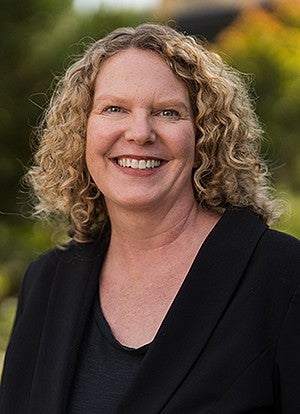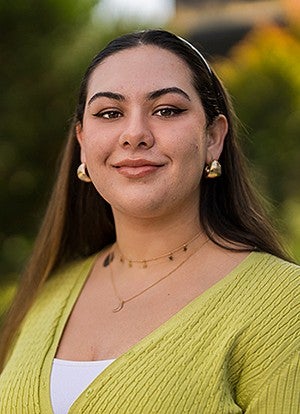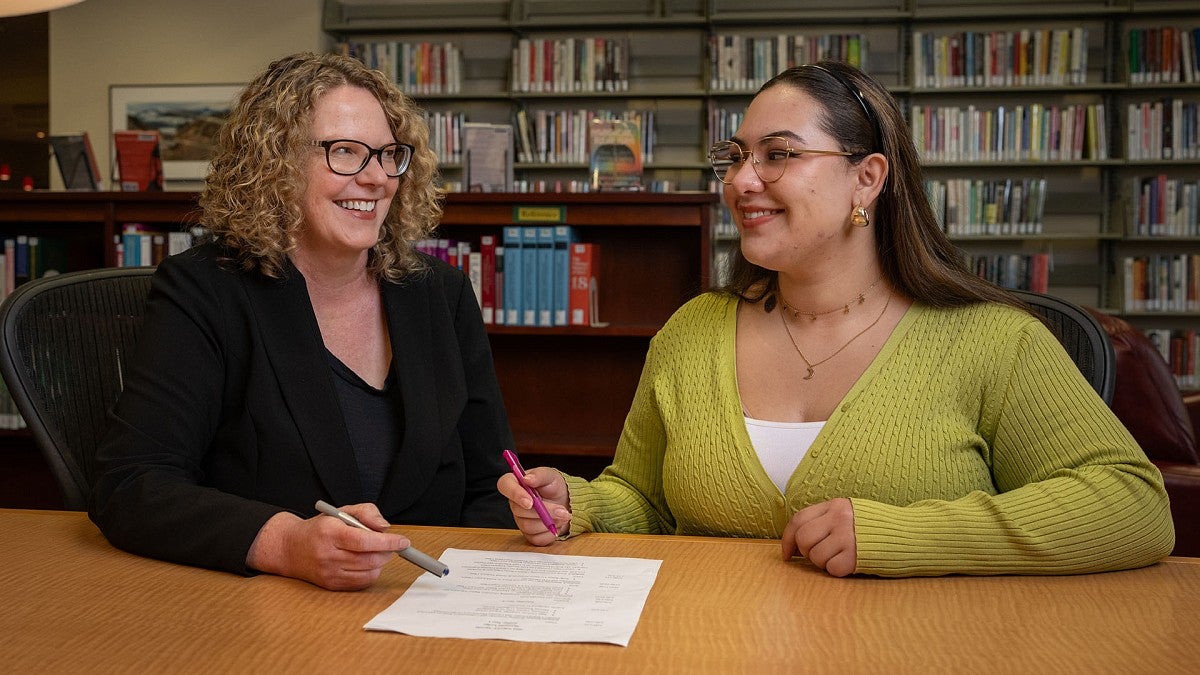The Business Law Clinic at the University of Oregon is celebrating 20 years providing free legal services to entrepreneurs around the state, giving students a chance to put their law school training into action while also benefiting small businesses.
Since the program launched in 2004 with a gift from alumna and entrepreneur Carolyn Chambers, 300 law students have earned credit under the tutelage of attorneys while drafting contracts, establishing corporations and giving sound advice to Oregon businesses.
This fall the clinic added trademark law to its menu of services.

“By helping solve actual business problems, our students put theory into practice,” said Mindy Wittkop, the clinic’s director and supervising attorney. “Real life and real law are messy. They’re never as cut-and-dried as the textbook.”
While sharpening their legal acumen students in the Business Law Clinic also learn critical soft skills, Wittkop said. Those include active listening, creative problem-solving and explaining complex legal concepts to clients, attributes that will help them succeed after they pass the bar.
The clinic operates much like a small law firm. Students are like associates and Wittkop and clinic co-instructor Laurie Hauber are akin to partners.
Students helping small businesses
Third-year law student Michelle Rodriguez worked with two Oregon ventures through the clinic last spring, a couple opening a restaurant and an interior decorator starting her own business.
“I had taken a contracts course, but this was different than a classroom,” Rodriguez said. “These were real people, and my work had real-world consequences.”
Rodriguez said she had to hit the ground running, but she accomplished more than she thought possible over the 14 weeks. By the end, she realized much of what she’d learned — interviewing clients, cultivating relationships, homing in on specific goals — came from practical experience.
For instance, Rodriguez said, a case in a law exam includes all the relevant facts. Not so in real life.

To fill in all the possible missing pieces Rodriguez had to communicate often with her clients, busy entrepreneurs who don’t understand all the jargon that trips off the tongues of law students.
That required tenacity, creativity and translating legalese into plain language — a great way to really learn the law, Rodriguez said.
An aid for entrepreneurs
For entrepreneurs like Robert and Tiffany Asumendi, the clinic has provided a legal foundation, allowing them to focus on the business they launched in 2023. Analog Sky sells kits and courses for amateur astronomers to build stargazing binoculars.
“The students in the clinic have been fantastic,” he said. “They were motivated to learn, share their knowledge and answer our questions.”
Last year, the clinic helped the Asumendis register and form Analog Sky LLC and document how it’s governed, which is important for a family-run operation. Students also helped them develop language warning users about the risks of pointing their binoculars at the sun and failing to follow instructions.
Those terms of service represent more than fine print. Getting it right means peace of mind, Asumendi said.
It was also a way to perform due diligence, helping ensure consumers use their products safely. The clinic will soon be trademarking their business name and logo.
Like most clients the clinic serves, Analog Sky could not afford an attorney. They would have skipped these crucial steps or winged it with a web search, Asumendi said.
The clinic serves businesses throughout Oregon. Its geographic range increased after the COVID-19 pandemic forced it to offer more virtual services. Today more than half the clients are remote, including businesses throughout Oregon.
Name, image, likeness and trademarks
In 2022, the clinic began offering name, image and likeness services. Following a 2021 Supreme Court ruling that opened the doors to college athletes seeking payment for the use of their name, image and likeness, the clinic began outreach, education and consulting in that arena.
Law students help with contracts, give educational presentations to UO classes and student groups and maintain a resource library about name, image and likeness law.
This year the clinic added trademarks and established Oregon Law as one of 64 schools in the U.S. certified to provide free legal services to the public for trademark matters.
Through its partnership with Portland attorney Parna Mehrbani, a partner at Tonkon Torp LLP, the clinic will be able to file federal trademark applications. That will also help expand the law school’s growing presence in Portland, Wittkop said.
Beyond a reasonable doubt, Wittkop said, the clinic will continue building on its first two decades — boosting burgeoning businesses while giving aspiring attorneys a trial run.
—By Ed Dorsch, University Communications
—Photos by Nicolas Walcott, University Communications
—Top photo: Clinic Director Mindy Wittkop (left) meets with law student Michelle Rodriguez


